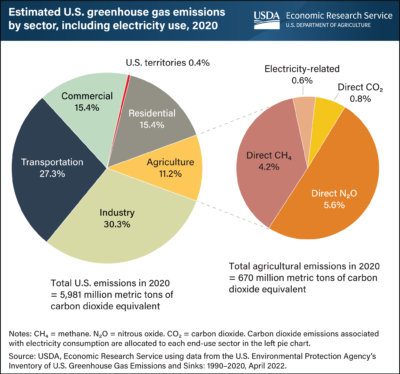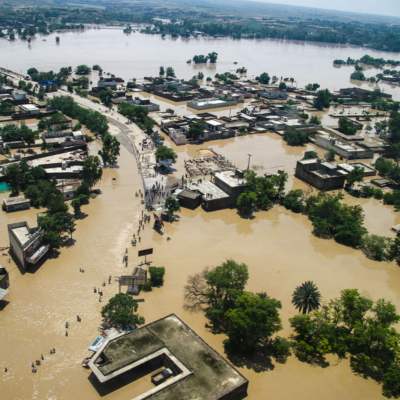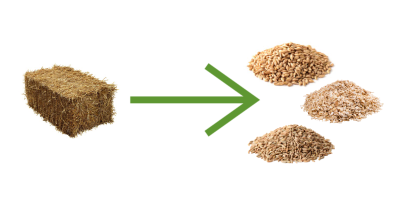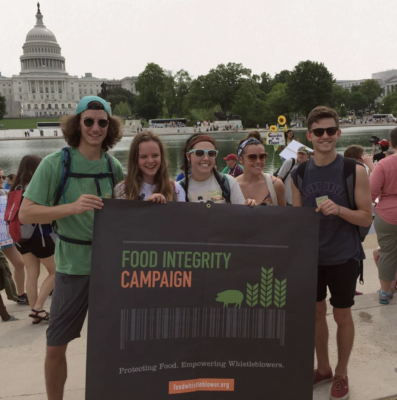Food Systems + Climate Change
The climate crisis has laid bare the problems with our modern food system. The current model functions to benefit a powerful few at the top while exploiting the labor of workers, degrading our natural environment, and harming animals. The U.N.’s Intergovernmental Panel on Climate Change (IPCC) report for 2023 warned governments and policy makers it’s past time to take significant action to address climate change. We are at an inflection point. We can’t continue with business as usual. A challenge of this magnitude calls on us to transform our food system. Fortunately, despite delayed and stunted responses from governments and corporations, truth-tellers have stepped forward to share climate truth and tragedy and help us find the way forward. At the FIC10 Conference, our “Food and Climate Change” panelists explored the importance of shifting individual dietary choices, as well as pressing companies and legislators to make changes from the local level to the international stage.
FIC is charting a path through various policy initiatives. Every five years the U.S. Congress has an opportunity to shape the future of our food system through the Farm Bill. The Farm Bill is “an omnibus, multiyear law that governs an array of agricultural and food programs.” It’s the time for policymakers to comprehensively address agricultural and food issues.
The Farm Bill is up for negotiations, giving us a chance to reimagine our food system. FIC supports a food system that: protects the health and safety of our most essential workers, regenerates our environment, uplifts our farmers, revitalizes our communities, provides transparency to the everyday buyer, ensures safe and nutritious food for all, and treats animals and our planet humanely. In furtherance of that goal, we support several policy reforms you can learn about here.
Scope of the Problem
 Agriculture accounts for 11.2 percent of U.S. greenhouse gas (GHG) emissions, according to 2020 data from the EPA. Livestock and poultry production alone generate over a third of U.S. methane emissions. This is due to the digestion processes of meat animals, manure management at concentrated animal feeding operations (CAFOs), and fertilizers. The contribution of these massive industries to our overall GHG burden in the U.S. has been steadily increasing over the last two decades. In a report by FIC, we examined the complex relationship between climate change policy and the powerful livestock industry.
Agriculture accounts for 11.2 percent of U.S. greenhouse gas (GHG) emissions, according to 2020 data from the EPA. Livestock and poultry production alone generate over a third of U.S. methane emissions. This is due to the digestion processes of meat animals, manure management at concentrated animal feeding operations (CAFOs), and fertilizers. The contribution of these massive industries to our overall GHG burden in the U.S. has been steadily increasing over the last two decades. In a report by FIC, we examined the complex relationship between climate change policy and the powerful livestock industry.
Climate Impacts Felt At Home and Around the Globe

Toxic algal blooms in local waterway
Climate change is having adverse effects on communities in the U.S. and globally. Sadly, it’s the vulnerable populations who’ve contributed the least to climate change who are experiencing its impacts the most. Locally, increased and worsening weather conditions like drought, heavy precipitation and hurricanes as a result of climate change, pose an imminent threat to local communities. The rapid expansion of hundreds of thousands more chicken barns into areas already saturated with factory farms is cause for alarm. Poultry waste is generally stored dry, in large piles, until it can be applied to fields, and is very high in nutrients including nitrogen and phosphorus. These nutrients can cause toxic algal blooms and water contamination if excess runoff gets into rivers, lakes, and drinking water. These impacts have been especially acute in the Delmarva Peninsula of the United States. The threat of increased storms creates a risky scenario for all this piled up chicken waste, as heavy rains can easily lead to increased nutrient runoff.

Devastating flooding in Pakistan, affecting millions of people and causing a mass migration of displaced people
Globally, climate change is adversely affecting food and water security. Extreme weather events are decreasing agricultural production in some regions and warming ocean temperatures and ocean acidification are impacting ocean fisheries and shellfish aquaculture. These extreme weather events are leading to loss of livelihood, biodiversity, human life, property and economic prosperity. As a result, people are migrating in many regions across the globe and experts only project displacement trends will increase.
Holding Governments and Big Ag Corporations Accountable for Climate Impacts
In the U.S. there’s a massive effort to fund and implement climate solutions that arise from our food system. In fact, the U.S. federal government, is making an unparalleled investment—over a trillion dollars in the next decade for climate solutions—and a significant portion of these investments will affect food and agriculture. As unprecedented amounts of money are poured into climate remedies, there must be accountability on how and where the money is spent.
Historically, government agencies with the ability to regulate agricultural industries have been slow to take responsibility and acknowledge the impacts of industrial agriculture. FIC is working with our partners to change this unfortunate trend. We advocate for agencies like USDA and EPA to recognize the harms that stem from livestock and poultry CAFOs and their impacts on local communities.
FIC believes that whistleblowers play a key role in preserving the air quality and water quality of our shared environment. There are many public servants working to address climate change via scientific research, technical assistance, and public outreach. It’s essential work, work to be proud of—FIC supports their commitment to the public’s interest and welcomes their disclosures.

Due to a changing climate, some farmers are replacing thirsty crops like alfalfa with crop varieties that are less water intensive like barley, oat and rye.
FIC is also working to ensure that public policies and programs support agricultural producers who opt out of industrial animal agriculture. We advocate for adequate resources to enable farmer-led efforts to create equitable and sustainable forms of food production. FIC keeps a close eye on technological solutions such as poultry waste incineration and factory farm gas that fail to alleviate harm to people, animals and the planet and act to further entrench the factory farm model.
Nature-Based Solutions to Climate Change
The good news is that there are approaches, technologies, and practices that can turn farming systems into a tool for fighting climate change rather than making it worse. Certain agricultural practices can help stop climate change and create farms that can better withstand the volatile weather that climate change brings. The USDA’s Natural Resources Conservation Service, land grant universities, and other federal agencies promote fighting climate change through agriculture. Interventions that fight climate change include cover crops, crop rotation, buffers of native plants, and pasture management. These practices can reduce soil erosion and fertilizer run-off, all while building up carbon storage in the soil.
Join Our Climate Initiatives at FIC!

Supporting the Food Integrity Campaign protects and empowers those who protect our food’s integrity in the face of climate change. Please consider joining the conversation by signing up for our email list or making a donation to FIC.
Close and return to the campaign page